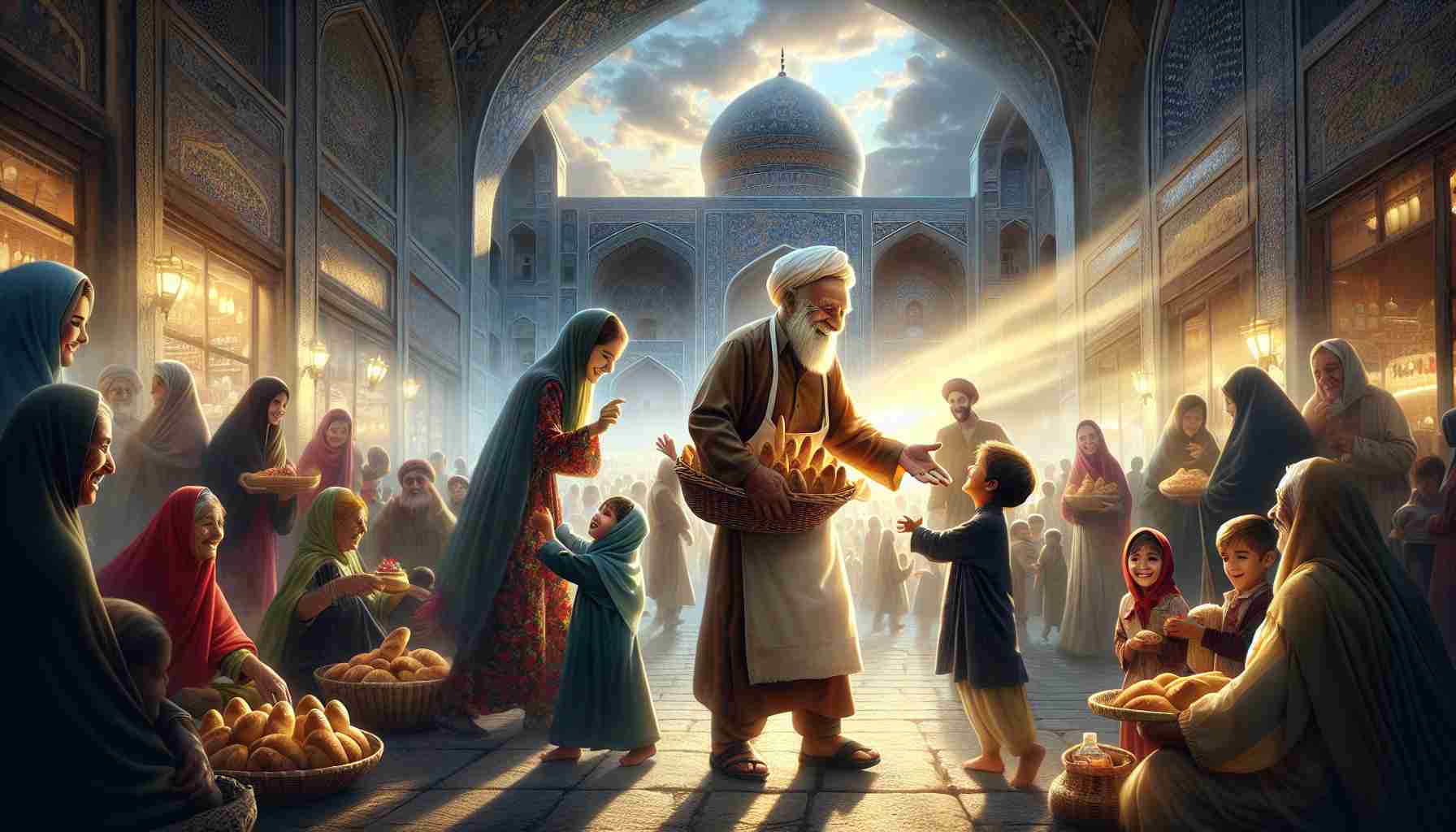

They said we would die on the thirteenth day of Adar.
I remember sitting behind our spice stall in the market when I first heard the decree. Haman—the king’s advisor—had convinced King Ahasuerus, ruler over the vast Persian Empire, to sign it. Every Jew, young and old, was marked for death. I am Tova, daughter of a merchant in Susa, the royal city. My father’s hands still trembled as he weighed cinnamon for a customer, even after the man walked away.
For weeks, fear lived inside me like a shadow. We prayed, fasted, and waited.
Then the world shifted.
Queen Esther—yes, our own Jewish queen, though she had kept her identity secret—risked everything. She spoke to the king. She revealed Haman’s evil plot. I still remember the gasps that echoed through the courtyard when the news spread: Haman had been hanged on the very gallows he built for our uncle Mordecai.
That day, the fear did not vanish…but it cracked.
And then the king gave us something we never expected: the right to defend ourselves. On the thirteenth of Adar, instead of falling silent in fright, our people rose in courage. That morning, I stood beside my older brother Eli as our neighbors gathered with makeshift weapons. I had never seen Eli cry before, but tears ran down his face as he kissed my forehead and whispered, “We will live today.”
And we did.
We defended ourselves from our enemies in Susa and across the provinces. When the sun rose the next day, there was peace. Real peace.
On the fourteenth day, I walked out into the streets, and I could barely recognize them. Where there had once been whispers and lowered eyes, there was music. Women danced, men gave gifts to the poor, and children ran with sweets in their hands. The holiday was called Purim—named after the “pur,” the lot Haman had cast to choose our day of death.
My father grabbed my hand and pulled me into the dancing. “We were not born to hide,” he said, his voice thick with emotion. “God turned our mourning into joy.”
That night, as we shared packages of food with our neighbors and read the scroll of Esther aloud, I caught sight of my own reflection in the silver trays—my dark eyes, my smile, my spirit. I looked like Tova again. Not someone hiding. Not someone afraid.
I thought I would never feel safe again. But God was still with us—in our fasting, in Esther’s bravery, in our unity. He didn't stop the decree, but He gave us the strength to face it. That changed everything.
Now, every Purim, as I help my daughters sew colorful costumes and fill baskets with sweets, I tell them the story. Not just of Esther, or of Mordecai. But of us. Of courage born in fear. Of dancing in the very streets where we once trembled.
Because we are still here. And we celebrate not just survival—but salvation.
They said we would die on the thirteenth day of Adar.
I remember sitting behind our spice stall in the market when I first heard the decree. Haman—the king’s advisor—had convinced King Ahasuerus, ruler over the vast Persian Empire, to sign it. Every Jew, young and old, was marked for death. I am Tova, daughter of a merchant in Susa, the royal city. My father’s hands still trembled as he weighed cinnamon for a customer, even after the man walked away.
For weeks, fear lived inside me like a shadow. We prayed, fasted, and waited.
Then the world shifted.
Queen Esther—yes, our own Jewish queen, though she had kept her identity secret—risked everything. She spoke to the king. She revealed Haman’s evil plot. I still remember the gasps that echoed through the courtyard when the news spread: Haman had been hanged on the very gallows he built for our uncle Mordecai.
That day, the fear did not vanish…but it cracked.
And then the king gave us something we never expected: the right to defend ourselves. On the thirteenth of Adar, instead of falling silent in fright, our people rose in courage. That morning, I stood beside my older brother Eli as our neighbors gathered with makeshift weapons. I had never seen Eli cry before, but tears ran down his face as he kissed my forehead and whispered, “We will live today.”
And we did.
We defended ourselves from our enemies in Susa and across the provinces. When the sun rose the next day, there was peace. Real peace.
On the fourteenth day, I walked out into the streets, and I could barely recognize them. Where there had once been whispers and lowered eyes, there was music. Women danced, men gave gifts to the poor, and children ran with sweets in their hands. The holiday was called Purim—named after the “pur,” the lot Haman had cast to choose our day of death.
My father grabbed my hand and pulled me into the dancing. “We were not born to hide,” he said, his voice thick with emotion. “God turned our mourning into joy.”
That night, as we shared packages of food with our neighbors and read the scroll of Esther aloud, I caught sight of my own reflection in the silver trays—my dark eyes, my smile, my spirit. I looked like Tova again. Not someone hiding. Not someone afraid.
I thought I would never feel safe again. But God was still with us—in our fasting, in Esther’s bravery, in our unity. He didn't stop the decree, but He gave us the strength to face it. That changed everything.
Now, every Purim, as I help my daughters sew colorful costumes and fill baskets with sweets, I tell them the story. Not just of Esther, or of Mordecai. But of us. Of courage born in fear. Of dancing in the very streets where we once trembled.
Because we are still here. And we celebrate not just survival—but salvation.